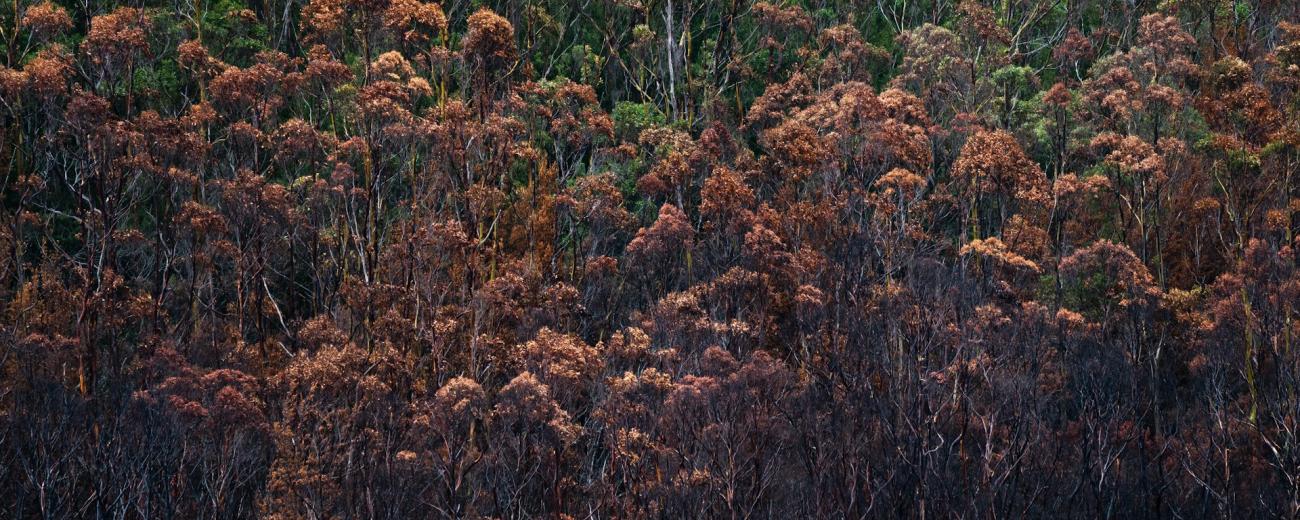
Powering-up public finance to drive economy-wide adaptation: Climate-nature fiscal risks, debt sustainability, and mobilising private investment

Key information
- Date
- Time
-
1:00 pm to 2:00 pm
- Room
- Virtual event
- Event type
- Event highlights
About this event
Many countries around the world are grappling with the same conundrum: how to meet the needs of a growing population and achieve the SDGs, while tackling the triple challenges of adapting to an already changing climate, the net zero transition and avoiding biodiversity loss.
These challenges are particularly acute in many emerging and developing economies, particularly those facing fiscal constraints and a challenging macroeconomic environment. This talk will present findings from several papers that explore how countries can deploy public resources most effectively to adapt to climate change and achieve development and nature-related goals, with a particular focus on infrastructure – both grey, green and hybrid.
It also addresses the synergies between debt sustainability and investing in adaptation and natural capital and opportunities to align fiscal policy with adaptation and nature. It lays out a roadmap for researchers and Ministries of Finance and Economy grappling with these issues.
The event is open to all but registration is required.
Header image credit: Matt Palmer via Unplash.
About the Speaker
Dr Nicola Ranger is Director of the Resilient Planet Finance Lab at the Environmental Change Institute, University of Oxford, Executive Director of the Oxford Martin Systemic Resilience Programme, co-Director of the UKRI Integrating Finance and Biodiversity Programme and a Senior Research Fellow at the Institute for New Economic Thinking of the Oxford Martin School.
Nicola brings 20 years' experience across government, IFIs, private sector and academia and holds multiple advisory roles, including for the FCDO and the European Commission's High Level Expert Group on Sustainable Investment in Emerging and Developing Economies. She works with governments, Central Banks, regulators, financial institutions and international organisations to provide analytics and evidence to inform finance and policy at all scales. Her research covers climate, nature, resilience, food, water and the SDGs with a strong finance, macro and public policy lens. Prior to joining Oxford, Nicola held senior roles in the World Bank and DFID (now FCDO), as well as HM Treasury.
Nicola also has a professional background in insurance and catastrophe risk modelling. Nicola completed her postdoctoral research in climate economics and policy at the London School of Economics and Political Science and holds a doctorate in Atmospheric Physics from Imperial College London.
About the RAMP University Network Seminar Series
The RAMP University Network Seminar Series provides a forum for discussion on the latest research related to the economics and finance of climate change adaptation, including amongst others, research on climate change and macroeconomic and financial stability, climate change and sovereign risk, adaptation finance, disaster risk finance and insurance, climate-sensitive budgeting and public financial management, costs and benefits of investing in climate resilience, and programme design.
About the RAMP University Network
The University Network for Strengthening Macrofinancial Resilience to Climate and Environmental Change was established to promote multi-disciplinary academic teaching and research in areas important for strengthening macrofinancial resilience to climate change.
The University Network is a key part of the Resilience Adaptation Mainstreaming Program (RAMP). The objective of RAMP is to accelerate climate adaptation in developing countries by building capacity in ministries of finance, planning and economics to understand, plan for, and finance climate adaptation actions.
The RAMP University Network consists of global universities that seek to build capacities to carry out relevant high-quality teaching and research and acts as a strategic and knowledge partner of major international organisations working in this field. The University Network develops curricula and course materials and organises teacher trainings to enable universities in climate-vulnerable countries to offer high-quality graduate-level teaching and professional training. This will enable future and current leaders to effectively address climate-related macro-financial risks and vulnerabilities that threaten public finances, financial and macroeconomic stability, and economic development.
RAMP is a collaboration between the World Resources Institute and the Centre for Sustainable Finance at SOAS, University of London. The University Network is managed by a Secretariat hosted by SOAS.




